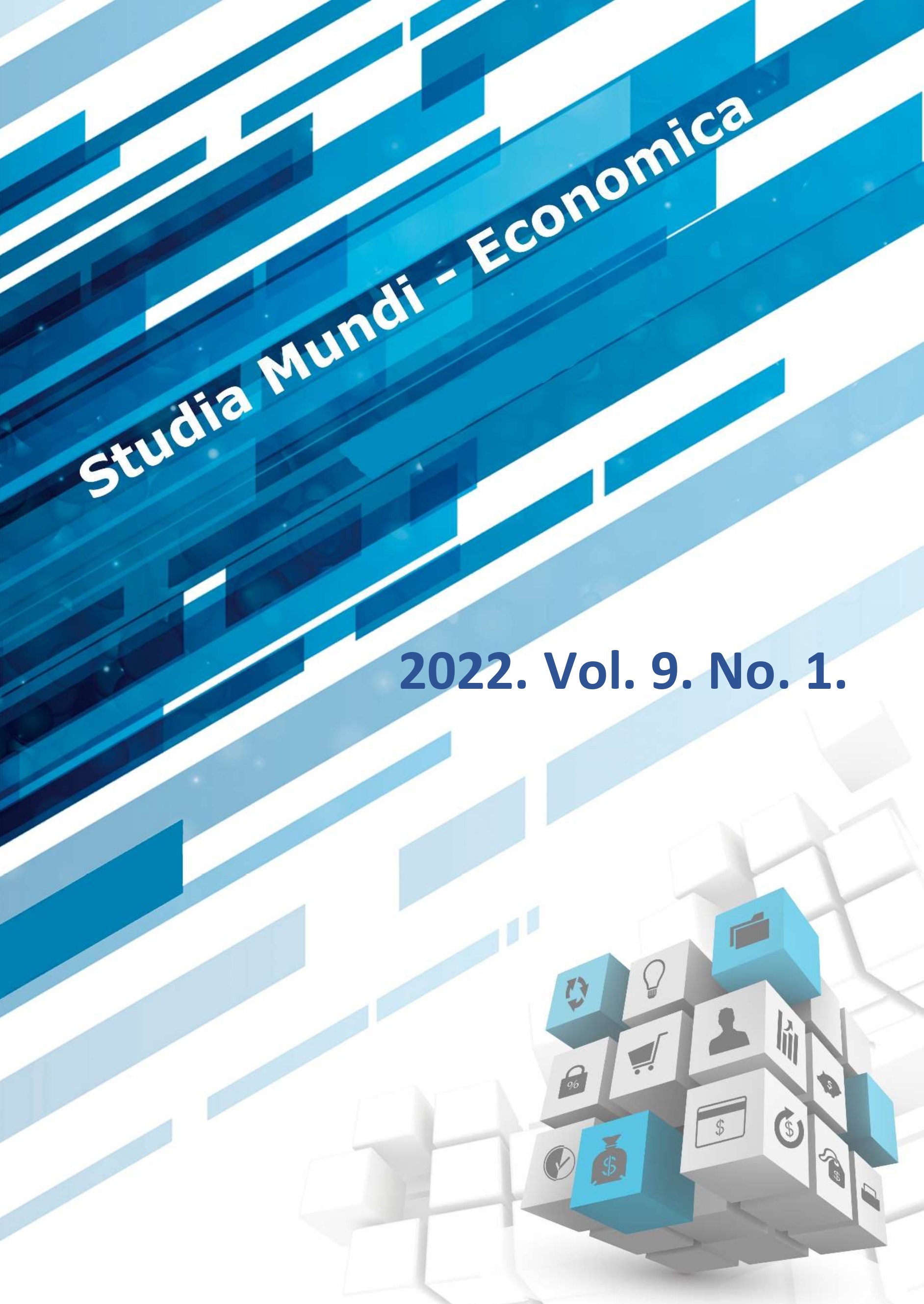ANALYSIS OF THE ECOSYSTEM OF E-SPORT
DOI:
https://doi.org/10.18531/Studia.Mundi.2022.09.01.9-20Schlagwörter:
e-sport, ecosystem, stakeholdersAbstract
Our daily lives are characterized by constant development, which offers new opportunities for us in several fields of life. As a result of technological development and digitalisation, a new industry (e-sport) has emerged and is growing rapidly. The popularity of e-sport is skyrocketing, but there are still several questions around this issue. Despite or due to the rapid growth, operators, operations, drivers, and contexts of this part of the entertainment industry are still an area that is unknown and needs to be explored. The aim of my research is to explore the current operation of e-sport, understand its characteristics to get a clear picture and provide an overview of the operators in the industry, the correlation between them, and the flow of money and value. To achieve my research goal, I conducted an analysis of the e-sport ecosystem. In the course of secondary data collection, I studied and processed existing domestic and international ecosystem analyses in literature, which I consider to be the most useful and valid for the purpose of the research. There are significant differences between existing ecosystem analyses; some are oversimplified while some are more complex for representation, but as far as I am concerned, none were completely complex. Models presented in this article do not, in my view, provide the most accurate picture of e-sport per se, but provide a comprehensive picture of the industry by integrating the positive aspects and systems of these analyses.
Literaturhinweise
Besombes, N. (2019): Esports Ecosystem and Landscape, https://medium.com/@nicolas.besombes/esports-ecosystem-and-landscape-3dbbd653dc2c, Accessed: 03 November 2021.
Darnall, N. - Henriques, I. – Sadorsky, P. (2010): Adopting proactive environmental strategy: The influence of stakeholders and firm size. Journal of management studies. Vol. 47. No. 6. 1072-1094. p. DOI: https://doi.org/10.1111/j.1467-6486.2009.00873.x.
Fransman, M. (2014): Models of Innovation in Global ICT Firms: The Emerging Global Innovation Ecosystems. EC-JRC Science and Policy Reports. Luxembourg, Publications Office of the European Union, 58 p., ISBN: 978-92-79-39533-8, ISSN 1831-9424, doi:10.2791/10679, https://ec.europa.eu/jrc/sites/jrcsh/files/jrc90726.pdf?search. Accessed: 15 September 2021.
Gawrysiak, J. (2016): E-sport: Video games as sport. In: S.E. Klein (Ed.): Defining sport: Conceptions and Borderlines (Studies in Philosophy of Sport). Lanham, Lexington Books, 278 p., 207-221. p., ISBN: 978-1498511575
Hamari, J. - Sjöblom, M. (2017): “Why do people watch others play video games? An empirical study on the motivations of Twitch users”. Computers in Human Behavior. Vol. 75. 985-996. p. DOI: https://doi.org/10.1016/j.chb.2016.10.019
Horváth, K. G. (2021): Az innovációs ökoszisztéma folyamatok fejlesztésének lehetőségei : Egy online innovációs fórum koncepciója. Polgári szemle. Vol. 17. No. 1–3. 348–357. p., ISSN 1786-6553, DOI: https://doi.org/10.24307/psz.2021.0725
Jalonen, H. (2019): The Value of E-Sports Is in the Eye of the Beholder, But Can E-Sports Operators Influence What the Spectators See? Advances in Applied Sociology. Vol. 9. No. 7. 306–329. p., ISSN: 2165-4336, DOI: https://doi.org/10.4236/aasoci.2019.97023
Jenkins, H. (1992): Textual Poachers: Television Fans and Participatory Culture. New York, Routledge, 352 p., ISBN: 978-0415905725
Jenny, S. E. - Manning, D. - Keiper, M. C. - Olrich, T. W. (2017): Virtual(ly) athletes: Where esports fit within the definition of “sport”. Quest. Vol. 69. No. 1. 1–18. p. DOI: https://doi.org/10.1080/00336297.2016.1144517
Jin, D. Y. (2010): Korea’s Online Gaming Empire (First Edition). Cambridge, The MIT Press, 208. p. ISBN: 978-0262014762
Kőhidi, A. (2018): Az elektronikus sport (e-sport) jogi megítélése, http://media-tudomany.hu/archivum/az-elektronikus-sport-e-sport-jogi-megitelese/#footnote-791-1, Accessed: 11 February 2021.
Láng, V. I. (2017): Minden e-sport gaming, de nem minden gaming e-sport, https://www.digitalhungary.hu/konferenciak/media-hungary/Minden-e-sport-gaming-de-nem-minden-gaming-e-sport/4297/, Accessed: 21 March 2021.
Mellár, T. (2015): Szemben az árral - Rendhagyó közgazdasági előadások, Budapest, Akadémiai Kiadó, 332 p. ISBN: 9789630596077
NEWZOO (2021): Global Esports & Live Streaming Market Report, https://resources.newzoo.com/hubfs/Reports/2021_Free_Global_Esports_and_Streaming_Market_Report_EN.pdf?utm_campaign=GEMR%202021&utm_medium=email&_hsmi=114762550&_hsenc=p2ANqtz--WhlAzMlZWdfJP7Dvcc4K5EcS1IwO0J0Lgcyq8laGqv9o-SIC0i6LyYOBFpEPpX9wCMljdEk8kPWrcMtzg_D9gVeeZW1DA_JX6l1nly_7d4enC1wY&utm_content=114762550&utm_source=hs_automation, Accessed: 04 November 2021.
NEWZOO (2022): Global Esports & Live Streaming Market Report, https://resources.newzoo.com/hubfs/Reports/Esports/Newzoo_Free_Global_Esports_Live_Streaming_Market_Report_2022.pdf?utm_medium=email&_hsmi=210409929&_hsenc=p2ANqtz-9zd6UcOBqLqa_99JkyBwbMZCoZ-ATFwvpXrjmKRmjw87lyIH9X8ZKIqCLaTYDb95HcDpdJajyOaEywQuw3huS_3FZA8hULr3sieajHx-XFSkmr7uE&utm_content=210409929&utm_source=hs_automation, Accessed: 25 April 2022.
PwC (2018): Az e-sport nem játék, Üzleti elemzés Magyarország és a V4-ek e-sport-piacáról, https://www.pwc.com/hu/hu/kiadvanyok/assets/pdf/esport.pdf, Accessed: 16 March 2021.
Ritzer, G. - Jurgenson, N. (2010): Production, consumption, prosumption: The nature of capitalism in the age of the digital “prosumer”. Journal of Consumer Culture. Vol. 10. No. 1. 13–36. p., DOI: https://doi.org/10.1177/1469540509354673
Scholz, T. (2019): ESports is Business: Management in the World of Competitive Gaming. Cham, Palgrave Pivot, 170 p., ISBN: 978-3030111984
Śliwa, P. - Krzos, G. (2020): The Model of eSports Ecosystems, Proceedings of the international scientific conference Hradec Economic Days 2020, Vol. 10. No. April, 705–711. p., DOI: https://doi.org/10.36689/uhk/hed/2020-01-080.
Szabella, O. (2018): Korunk virágzó biznisze? Az e-sport iparág bemutatása. Információs Társadalom szaktudományos folyóirat. Vol. 8. No. 1. 66–92. p. DOI: https://doi.org/10.22503/inftars.XVIII.2018.1.5
Vera, J. A. C. - Terrón, J. M. A. (2019): The esports ecosystem: Stakeholders and trends in a new show business. Catalan Journal of Communication and Cultural Studies. Vol. 11. No. 1. 3–22. p., DOI: https://doi.org/10.1386/cjcs.11.1.3_1
Wagner, M. (2006): On the scientific relevance of eSports’, Proceedings of the 2006 International Conference on Internet Computing & Conference on Computer Games Development, Las Vegas, USA, 26–29 June, CSREA Press, 437–442. p.
Winge, T. (2006): Costuming the imagination: Origins of anime and manga cosplay. Mechademia. Vol. 1. No. 1. 65-76. p., DOI: https://doi.org/10.1353/mec.0.0084.
Witkowski, E. (2012): On the digital playing field: How we “do sport” with networked computer games. Games and Culture, Vol. 7. No. 5. 349–374. p. DOI: https://doi.org/10.1177/1555412012454222
Downloads
Veröffentlicht
Ausgabe
Rubrik
Lizenz
Copyright (c) 2022 László Fenyves

Dieses Werk steht unter der Lizenz Creative Commons Namensnennung - Nicht-kommerziell - Keine Bearbeitungen 4.0 International.
A folyóirat Open Access (Gold). Cikkeire a Creative Commons 4.0 standard licenc alábbi típusa vonatkozik: CC-BY-NC-ND-4.0. Ennek értelmében a mű szabadon másolható, terjeszthető, bemutatható és előadható, azonban nem használható fel kereskedelmi célokra (NC), továbbá nem módosítható és nem készíthető belőle átdolgozás, származékos mű (ND). A licenc alapján a szerző vagy a jogosult által meghatározott módon fel kell tüntetni a szerző nevét és a szerzői mű címét (BY).






